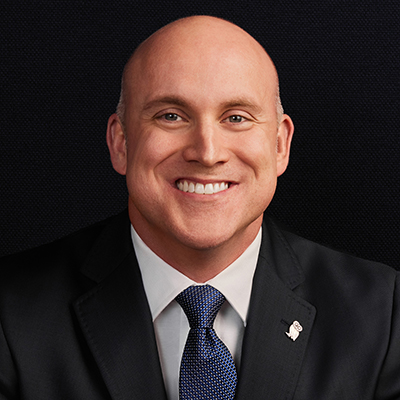 Lane W. Martin is the Robert A. Welch Professor of Materials Science and NanoEngineering, Chemistry, and Physics and Astronomy and the inaugural Director of the Rice Advanced Materials Institute, both at Rice University as well as a Faculty Senior Scientist in the Materials Sciences Division at Lawrence Berkeley National Laboratory. Lane received his B.S. in Materials Science and Engineering from Carnegie Mellon University in Dec. 2003 and his M.S. and Ph.D. in Materials Science and Engineering from the University of California, Berkeley in May 2006 and 2008, respectively. From 2008 to 2009, Lane served as a Postdoctoral Fellow in the Quantum Materials Program, Materials Sciences Division, Lawrence Berkeley National Laboratory.
Lane W. Martin is the Robert A. Welch Professor of Materials Science and NanoEngineering, Chemistry, and Physics and Astronomy and the inaugural Director of the Rice Advanced Materials Institute, both at Rice University as well as a Faculty Senior Scientist in the Materials Sciences Division at Lawrence Berkeley National Laboratory. Lane received his B.S. in Materials Science and Engineering from Carnegie Mellon University in Dec. 2003 and his M.S. and Ph.D. in Materials Science and Engineering from the University of California, Berkeley in May 2006 and 2008, respectively. From 2008 to 2009, Lane served as a Postdoctoral Fellow in the Quantum Materials Program, Materials Sciences Division, Lawrence Berkeley National Laboratory.
From 2009 to 2014, Lane was an Assistant Professor in the Department of Materials Science and Engineering at the University of Illinois, Urbana-Champaign. Lane returned to the University of California, Berkeley as an Associate Professor from 2014-2018. He was promoted to Professor in July 2018 and served as Vice/Associate Chair from 2018-2021. From 2021 to 2023, Lane was a Chancellor’s Professor and Chair of the Department of Materials Science and Engineering and served as both the Secretary and Chair (elected) of the Faculty of the College of Engineering at the University of California, Berkeley.
Lane has been active in MRS for more than 20 years and continuously throughout his professional career. His work with MRS has included organizing multiple symposia at the Fall and Spring MRS meetings and IMRC meetings, serving as a member of the Discovering Breakthroughs Inside Science (DBIS) Committee, serving on the Strategic Programming Planning Subcommittee, and serving as a reviewer for the Graduate Student Award selection committee at multiple meetings. More recently, Lane was a Meeting Chair for the Fall 2022 MRS meeting and is currently a member of the Topical Curation Subcommittee. Lane is also a member of other societies, including ACerS, APS, and IEEE-UFFC where he is active in numerous society committees. Lane also serves on numerous advisory boards for materials science programs, national user facilities, and large-scale research programs. He is also a member of the governing committee (the Ferroelectrics Standing Committee) for IEEE-UFFC and is a member of the International Advisory Board of Advanced Materials.
Lane’s research focuses on the study of the synthesis, characterization, and utilization of emergent function (be that electronic, ferroic, multiferroic, etc.) in complex oxides. He applies innovative synthesis of highly controlled, epitaxial thin-film materials with special attention to accessing new states of matter, uses growth and epitaxy to access new insights about foundational materials physics, and pushes the edge of material response via strain, defect, and interfacial engineering. To date, Lane has published >285 papers, his work has been cited ~31,000 times (resulting in an h-index = 79; i10-index = 232), and he has given ~190 invited/plenary/keynote talks. His work has garnered numerous honors including leading to him being named a Fellow of the Materials Research Society, the American Ceramics Society, and the American Physical Society. He is also a multiple-time Highly Cited Researcher and has won numerous other awards including the Presidential Early Career Award for Scientists and Engineers.